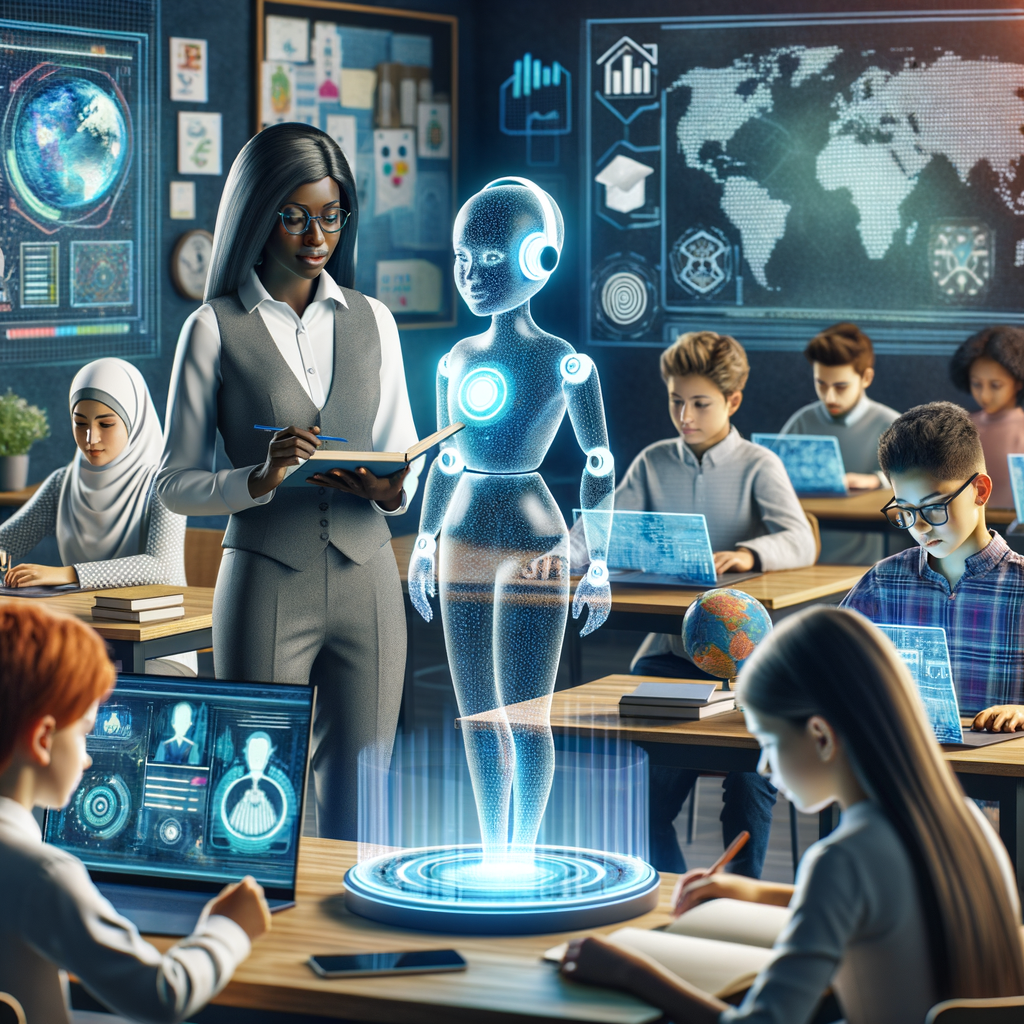Artificial Intelligence is not just changing technology—it’s revolutionizing how we learn! Imagine a classroom where every student receives personalized instruction tailored precisely to their learning style and pace. Recent studies reveal that AI-powered educational technologies could potentially increase student engagement by up to 60% and improve learning outcomes dramatically.
The education landscape is undergoing a profound transformation, with AI serving as the catalyst for unprecedented personalization and innovation. From adaptive learning platforms to intelligent tutoring systems, we’re witnessing a paradigm shift that promises to make education more accessible, efficient, and impactful than ever before.
Understanding AI’s Role in Modern Education
Artificial Intelligence has rapidly transformed educational landscapes, evolving from a futuristic concept to a practical classroom companion. At its core, AI in education represents sophisticated computational systems designed to enhance learning experiences, much like a personalized digital tutor that adapts in real-time.
Modern educational AI leverages machine learning algorithms and neural networks, tracing its roots back to early computational learning models. These technological components have progressively become more nuanced, enabling more intuitive and responsive educational interactions.
Personalized Learning through Intelligent Systems
Intelligent adaptive learning algorithms are revolutionizing how students engage with educational content. By continuously analyzing individual performance metrics, these systems can dynamically adjust curriculum complexity, learning pace, and instructional strategies.
For instance, platforms like Khan Academy and Duolingo already employ AI to create personalized learning paths, ensuring that each student receives targeted content matching their specific knowledge gaps and learning styles.
AI-Powered Teaching and Administrative Tools
Beyond student interactions, AI is streamlining administrative workflows through advanced predictive analytics. Automated grading systems can now assess complex assignments with remarkable accuracy, freeing educators to focus on more nuanced pedagogical strategies.
Predictive models can also identify students at risk of falling behind, allowing proactive interventions before academic challenges become insurmountable.
Ethical Considerations and Challenges
As AI becomes more integrated into educational ecosystems, critical ethical considerations emerge. Data privacy remains paramount, with institutions needing robust frameworks to protect student information.
Moreover, algorithm transparency is crucial to mitigate potential biases that could inadvertently disadvantage certain student populations. Maintaining a human-centric approach ensures technology enhances rather than replaces meaningful educational interactions.
Future Trends in AI Educational Technologies
Emerging educational technologies are poised to create immersive learning experiences through virtual and augmented reality interfaces. These platforms will likely simulate complex scenarios across disciplines, from medical training to historical reconstructions.
Ultimately, AI in education isn’t about replacing human educators, but empowering them with unprecedented insights and tools to unlock students’ full potential.
Conclusion
As we stand on the cusp of an educational revolution, AI represents more than just a technological advancement—it’s a transformative force reshaping how we understand learning. While challenges remain, the potential for creating more inclusive, personalized, and effective educational experiences is immense.
Educators, technologists, and policymakers must collaborate to responsibly harness AI’s potential, ensuring that these powerful tools enhance rather than replace human creativity and connection.

